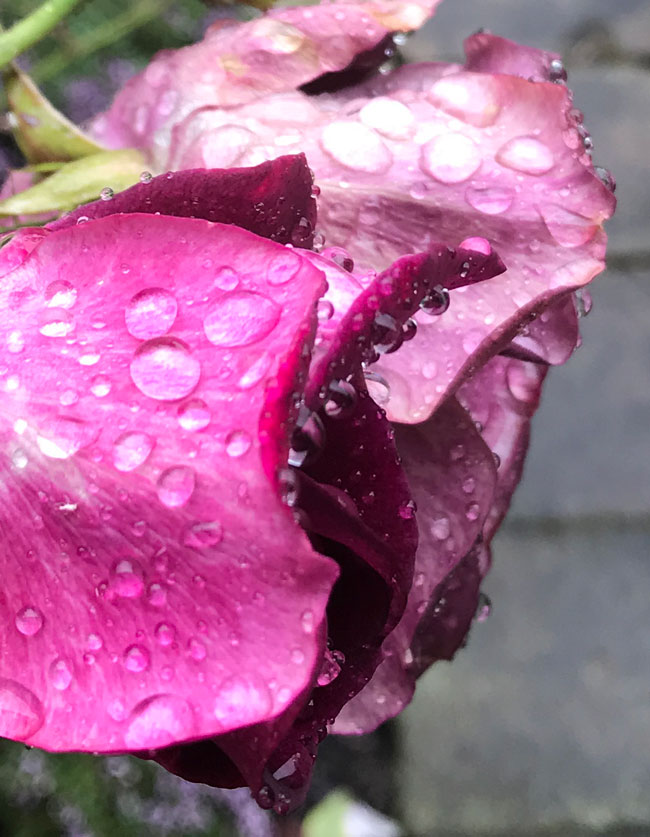Kia ora, I first met Lynn when I was asked to take a class for a tutor who was sick. This was a first year class in script writing. Then we met again as students in a year 2 poetry class tutored byLynn Davidson. A great year and a great class. One of those special years that whenever I meet one of the seven student who was in that fabulous class we all agree, it was a great year. If you haven’t read Lynn’s book, Dear Sweet Harry, get it today and read it. Some of her poems in this book began their life in that class.
A writer of work in no clear genre is how Lynn describes herself…here’s Lynn…
Idea — which comes first — subject, form, a line? Or other?
Other. I often write about things that are happening. The trigger might be an image, or a sound, or a feeling. My picture of this is that life is rushing by, a bit like a river in flood, and sometimes I see things in the water and wonder what they are or what they mean. Mostly they rush on past me, and in a few days I have forgotten about them, but occasionally I manage to write about them. Actually, that’s how I know to start writing… if I havent forgotten something after a few days. The act of writing holds everything in place for a while and stops these things from disappearing before Ive had a chance to really think about them. I realise that this makes me very much an ‘ideas’ writer, as opposed to a ‘language play’ writer. At the same time, writing is to share, and I want readers to feel deeply, as I do, about the things I am exploring. I have learned that writing is a place where I can be as strange as I like, as long as the writing is, in some way, clear, in some way surprising and working in some emotional territory that matters to me and other people. I have tried writing from a form, but mostly I end up abandoning it because the idea takes over and makes its own form. I wish I began writing with a phrase or words, like the best poets, but I don’t. That’s how I know I belong more in the hybrid territory than in ‘pure’ poetry-land. Love the one you’re with, I say.
Planning — do you plan your entire work before you write a word?
NO. I just start and keep going until the parts that matter arrive. I never know what the point is going to be, otherwise I would not be doing it. See above…
Rituals — are there any rituals you like to observe before you sit down to write?
No. I just start. Often, for longer work, I have left myself some idea of what to start with from the previous session, but if it is new work, then no, there is no easy way. I just open a document and start. This moment never gets any easier, I find.
Rejection — how do you handle rejection?
When I first started writing a friend told me she allocates herself 24 hours to sulk after a rejection [of her writing] and then moves on. It was helpful to have her permission to sulk, and because she said 24 hours was OK, I often find I don’t need that many. Thanks to Helen Lehndorf for that and many other freeing thoughts.
I guess that having had my work workshopped by lots of people, I have kind of gotten over the idea that it would or could appeal to everyone. I have learned: some people are your readers, and some aren’t.
I’m not a great submitter. I do everything else first, and then thank goodness, it gets dark, and no one has to submit at night. I am easily over-awed by famous names too. All this leads me to make quite conservative decisions about where I send work. If I can’t picture my work amongst what a journal publishes, then I don’t submit it to that journal. It can work the other way too… If I find the work in a particular journal exciting, then I might send work there. Just by the way, I have recently been very interested by the UK free online journal Five Dials.
Success – and where were you when you learned your first poem had been accepted for publication?
The first poem I had published was in a journal called Spin, in 2004. The poem was one that wrote itself – based on a tidal wave of emotion – in my first poetry class at Whitireia. The poem was a ‘mash-up’ of my words and a song by Neil Finn. I think the year had ended by the time the poem was published, and I was back home, thinking about how to do more of that sort of thing. It was four years before I sent anything else away or had anything else published, because although I kept writing, nothing seemed to work. Now I can see that none of that was wasted. It’s never wasted.

